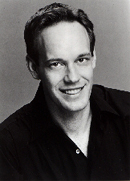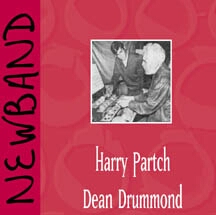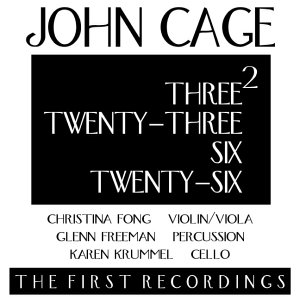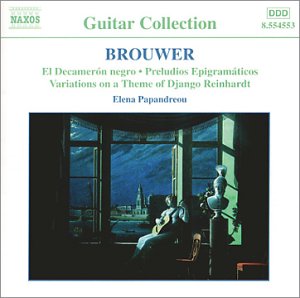 |
|
 |
|
| About Us | Essential
Library |
Homepage Archive | Resources | Composer Links |
Born in Portland, Oregon, on May 14, 1917, he has traveled extensively, at various times calling San Francisco, Los Angeles, New York City, North Carolina, Oaxaca, and New Zealand home. For the past 40 years, his permanent home has been the Monterey Bay region of California. Residence on the West Coast has intensified Harrison’s involvement in a synthesis of musical cultures bordering on the Pacific, reflected in such works as “Pacifica Rondo” and “La Koro Sutro” for chorus and gamelan. In addition to Cowell, Schoenberg and Cage, he has studied and worked extensively with Howard Cooper and Virgil Thomson. As an artist, Lou Harrison is a true original. Unable to find the sound he imagined within Western orchestra, he looked elsewhere for inspiration—other cultures (China, Korea, Indonesia, Mexico), other sound sources (flower pots, brake drums, oxygen tanks), and other disciplines (dance, drama, literature). At the age of 85, he maintains a youthful enthusiasm about musical ideas.
|
"Morton Feldman once described his Second String Quartet as a nightmare. That has certainly seemed to be true from the standpoint of the groups that have played it... The piece is five hours long: 293 minutes, to be exact. If you lift your right arm into the position to hold a violin bow and imagine keeping it there for five hours, you will see the problem." Many groups have declined to perform it after originally agreeing to try, but a new recording attempts to breath life into the work, which can easily be seen as a microcosm of the controversial mid-20th century school of composition. The New York Times 02/17/02 MENOTTI'S GIFT: "In 1936 this Italian composer wrote what has become the most-performed opera in America. He founded the renowned Spoleto music festival and moved to a stately home in Scotland in the 1970s, where his plan for an arts centre for young talent has foundered in the face of indifference." Why can't Gian Carlo Menotti get more respect? The Guardian (UK) 02/16/02 HOW TO SUCCEED IN COMPOSITION BY REALLY TRYING: In an age when even fans of new music generally shun such ear-bending techniques as quarter-tones and minimalist repetition in favor of a new reassertion of melody and theme, a composer who embraces the inaccessible as firmly and unapologetically as Gyorgi Ligeti would seem to be in danger of falling by the wayside. But there is a quality to Ligeti's composition, a dangerous yet inviting subtext, that has kept audiences and musicians alike coming back for more. "New England is in the midst of an unofficial Ligeti festival, as it often is; Ligeti's new works tend to enter the standard repertoire with little delay." Boston Globe 02/17/02 EVOLUTION OF A CONCERT HALL: Laugh at the name if you wish, but reports suggest that Los Angeles's soon-to-rise Walt Disney Concert Hall will be nothing to sneeze at. The hall is coming together thanks to the collaboration of architect Frank Gehry, L.A. Phil music director Esa-Pekka Salonen, and world-renowned acoustician Yasuhisa Toyota, and the trio believes that the result will be California's first truly world-class concert hall, with a facade that cannot be ignored and acoustics to rival those in Boston, Vienna, and Berlin. Andante 02/15/02 SO IS THIS MUSIC OR ART? OR BOTH? "Sound art" is still a fairly controversial and largely unknown concept, and the fact that it takes place in traditionally silent museums and galleries rather than concert halls probably isn't helping its image. But a new travelling exhibit aims to unravel some of the confusion surounding the medium, and mainstream it as well. "Visitors will witness both the work of artists who create 'instruments' they play during live performances and the work of those who build soundscapes from abstract environments." Wired 02/15/02 COPYCAT FLUTE? Did Mozart plagiarize for one of his most popular operas? There are an awful lot of similarities in characters and music in his Magic Flute to an opera called The Beneficent Dervish, which was composed before Flute and which Mozart almost certainly heard. Slate 02/13/02 ADAMS DEFENDS SELLARS: Composer John Adams is being controversial again. This time he's defending director Peter Sellars and his role in the Adelaide Festival. Late last year the festival fired Sellars after he had revealed his programming for this year's event. Says Adams: "It's hard to believe that the people who hired him didn't know what they were going to get, knowing his history and his political sympathies.'' Adelaide Advertiser 02/13/02 ONE FROM COLUMN A... The music of choice for a new iconic Levi's commercial? A Handel Sarabande. But isn't classical music a sell for older folks? Surely not the 20-somethings Levi is playing to. "In the thick of the biggest technological, demographic and moral upheavals for two centuries, our cultural needs are changing gear. Classical no longer means what it did in the 20th century. It is not the elite preserve of the middle-aged middle classes, nor is it off limits to kids.." The Telegraph (UK) 02/13/02 SILENCING EUROPE'S ORCHESTRAS? A proposed European Union law would limit the amount of noise in the workplace. But under the law, symphony orchestras playing all out would exceed the limits. "The Association of British Orchestras (ABO) is fighting to be exempted. The parliament wants to reduce the decibel limit of noise in the workplace to 83, the point at which workers have to wear hearing protection. A single trumpet is said to play up to 130 decibels and the ABO fears that the directive would effectively silence performances. 'It will stop us playing any loud music whatsoever, affecting almost of all of the pieces played by orchestras'." BBC 02/12/02 ADAMS TO WRITE MEMORIAL: The New York Philharmonic has named composer John Adams to write a memorial piece to the events of September to be performed at the Philharmonic's opening concert next season. The piece will accompany Beethoven's Ninth Symphony on a program conducted by music director Lorin Maazel. Andante 02/12/02 PAY-FOR-DOWNLOADS A BUST: A new report says paid music downloading has been a failure so far, despite a $4 billion investment by music businesses. "Legitimate, paid-for music downloads earned only $1 million (£710,000) in the US and UK last year. At the same time, some eight billion tracks were exchanged by users of pirate sites offering free music downloads - and up to 2.7 million people at any one time are logged on to them." BBC 02/10/02 WHERE DID CITY OPERA'S MONEY GO? A benefit for victims of September 11 by New York City Opera sold tickets for as much as $100, and the house was nearly full. The cast and crew donated their services for the occasion. So why did only $18,500 find its way to the September 11 fund? "There has been no accounting - it's all a big mystery," a chorus member said. "We put our hearts into this. Everybody wants to know what came of it." The $18,500 would equal the sale of just 185 of the benefit's $100 tickets, although some tickets sold for $50 and $25." By contrast, the Metropolitan Opera's fundraiser donated $2.6 million to the fund. New York Post 02/10/02 |
The Adams Chronicles
|

Dead Man Walking Composer: Jake Heggie Conductor: Patrick Summers Performer: Susan Graham, Frederica von Stade Ensemble: San Francisco Opera Chorus and Orchestra Wea/Atlantic/Erato - #86238 No "Nixon in China" or "Einstein at the Beach" but young Heggie has a way with melody and this debut opera suggests there may be better things to come. |
A Prole do Bebe No. 2, Cirandinhas Composer: Heitor Villa-Lobos Performer: Sonia Rubinsky Naxos - Flat out fantastic. Rubinsky makes child's play of Villa-Lobos' thornier conceits. If you live in New York, write this down: Sonia Rubinsky will be performing selections from Vol. 2 and the upcoming Villa-Lobos: Piano Music Vol. 3 on March 14th, Thursday, at 6:30 pm at the Klavier-Haus located at 211 West 58th St. |
Music for the Movies Alfred SCHNITTKE (1934-1998) Composer: Alfred Schnittke Conductor: Frank Strobel Ensemble: Rundfunk-Sinfonieorchester Berlin, Rundfunkchor Berlin Cpo Records Schnittke regarded film music as a legitimate expressive medium and wrote more than sixty film scores and worked with the prominent directors of his day. This collection demonstrates that he understood film composition thoroughly and considered it a new vista for his creative work. |

NEWBAND Composers: Harry Partch, Dean Drummond Innova 561 Works by former cohorts and microtonal pioneers, Harry Partch and Dean Drummond. This stunning new recording is performed by members of Newband primarily on the original Partch collection of hand-made instruments, notable for their sculptural and acoustic beauty. The music integrates declaimed poetry (masterfully performed by Bob Osborne) with colorful instrumental accompaniment. The Drummond pieces are first recordings, the Partch are the first since the 1940s.
|
|
Preludes & Fugues for 13 solo strings: Three Postludes; Fanfares Composer: Witold Lutoslawski Conductor: Antoni Wit Naxos - #8555270 A treasure trove of Lutoslawski's "little" works, with lots of delightful listening for even those not fully committed to 20th century work. |
Passacaglia, Symphony, Five Pieces Passacaglia, Symphony, Five Pieces Composer: Anton Webern Conductor: Takuo Yuasa Ensemble: Ulster Orchestra Naxos Who knew that the Second Viennese School could be so...listenable. Has the music changed or have our ears adapted to the atonality? |
Concerto for Strings Composer: Joly BRAGA SANTOS Performer(s): Braga Santos, Creswick, Somov, Blair, Cassuto Marco Polo - Joly Braga Santos is one of the most interesting and gifted composers of the 20th century--and one of the most unknown. His musical language is based on a strong sense of architecture and drama, with generous melodic lines and a natural instinct for structure and formal coherence. If you don't know the work of this 20th century Portugese master, grab it. |
Symphony No. 1 Composer: George Barati Conductor: Laslzo Kovaks, Vladimir Valek Ensemble: Budapest Symphony Orchestra, Czech Radio Symphony Orchestra Naxos - The First Symphony was written in 1963 during a stay in Switzerland. Set in three movements, it is packed with musical incident. The Chant of Darkness was composed in 1993 as an expression of the composer’s grief as his daughter lay dying from cancer. The work exhibits a frightening sense of finality. The Chant of Light dates from 1994-5 and is cast in a simple structure, displaying Barati’s love of working with small motivic cells, combined with the use of luscious orchestral color. |

90% Post Consumer Sound Composer: Ellen Band Performer: Adele Armin Ellen Band Band creates 'sound art' from everyday noises with results that sometimes sound celestially musical and sometimes sound like..well everyday noises. |

Three2, Twenty-Three, Six, Twenty-Six Composer: John Cage Performer: Christina Fong, Glenn Freeman, et al. Orchard - #6260 |
String Quartets 1 & 2 Composer: Arnold Bax Performer: Maggini Quartet Naxos - Fresh from the Gramophone Award-winning Naxos recording of Vaughn Williams, the Maggini turn their attention to another English composer of elegiac melodies with superb results. |

Guitar Music, Vol. 2 Composer: Leo Brouwer Performer: Elena Papandreou Naxos - One of the best writers for the guitar alive today, Brouwer combines elements of his native Cuba with jazz and European modernism. Papandreou performs these tricky pieces elegantly. |
|
One-Minute Web Guide The essential guide to intelligent life on the internet |
Publisher: Duane Harper Grant (212) 582-4153 Editor: Jerry Bowles (212) 582-3791 Contributing Editors: Armando Bayolo, Sam Bergman, Joshua Cohen, Karina Cristina Demitrio, Deborah Kravetz (C) Sequenza/21 LLC 2000 |